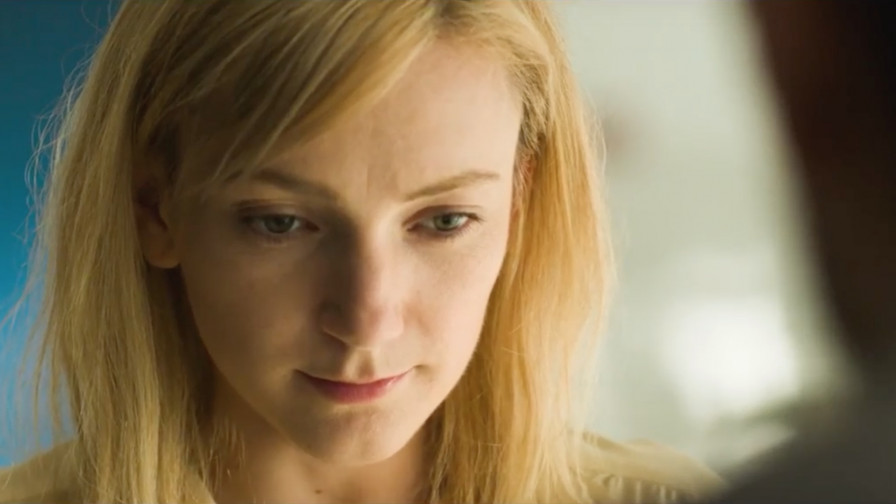Close-up of two female faces
The artistic director of the festival, Carlo Chatrian, has called upon seven filmmakers whose films he believes have shaped the Berlinale to select one filmmaker they feel attached to and with whom they would like to converse about cinema. The two directors will then show their films and meet for an exchange in the form of a public discussion. From Hungary, Chatrian has chosen Ildikó Enyedi, whose film On Body and Soul (‘Testről és lélekről’) has won not only the Golden Bear, but also the FIPRESCI Prize, the Prize of the Ecumenical Jury and the Berliner Morgenpost’s Readers’ Jury Award before going on to be nominated for an Oscar.
Enyedi has chosen a film from 2018, one that is new to the Berlinale: Zsófia Szilágyi’s One Day (‘Egy nap’) had its debut in Cannes in the Critic’s Week section where it won the FIPRESCI Prize to a first or second film in the parallel sections.

On Body and Soul
The storyline of the two films may not have much in common, but beneath the surface there are a lot of similarities, which explains the connection between the two masterpieces of Hungarian cinema. To start off with, the two directors are personally connected in many ways. Enyedi first received worldwide attention with her first feature, My 20th Century (‘Az én XX. századom’), which won the Golden Camera of the Cannes Film Festival in 1989. Since then she has established herself as one of the main figures of Hungarian cinema, not only as a director but also as a teacher, taking the film directing class of 2007, from which Szilágyi indeed graduated.
On Body and Soul was the ‘big return’ of Enyedi, who did not have the opportunity to direct any feature films for almost twenty years. When she did she chose her assistant from among her students, and so it was that Szilágyi worked on the movie by her side. That was right before Szilágyi – who, like Enyedi, also had to wait several years – started to work on her own debut feature, One Day, thanks to all the experience she had learned from Enyedi at the University of Theatre and Film Arts Budapest as well as on set.
However, personal relations are not the only bond that connects the two films. Both are beautiful examples of the 21st century’s new way of cinema in which strong, independent women can be the protagonists of films and not only the supporting characters in a man’s world or the targets of the male gaze. The two films present two stories about women; ones that are not ‘feminine’, but universal and humane. Enyedi and Szilágyi both found extraordinary and unique ways to portray them.
On Body and Soul tells the story of Mária, a young woman on the spectrum who is hired to work at a slaughterhouse, becoming the new and maybe too-rigorous inspector. When a petty crime takes place at the workplace, a psychologist is invited to talk to everyone in order to find the culprit. That is when it comes to light that Mária has for some time been having the same dreams as her boss, Endre, in which they form a loving pair of deer. Inspired by this strange phenomenon they try to approach each other in real life too, only to realise that nothing is harder in life than to fully and deeply understand each other – but that it is also worth the effort.
Understanding one another is the film’s main ‘storyline’. Enyedi’s quiet, calm, somehow melancholic – but also funny – and beautiful film addresses the topic in a way that is as yet completely unknown in film history. The director uses such subtle, yet easily understandable, metaphors that the film manages to find a way to speak to all of us by using not only the surprising idea of deer but also Mária’s autism. As she cannot really see through people’s everyday dissimulations and little white lies, she experiences every emotion in its purest form so that viewers face them all from a rare, new angle.

One Day
Pure emotions shown from another viewpoint could also be a brief summary of One Day. Zsófia Szilágyi’s film shows one (and a half) day in the life of an ‘ordinary’ mother who has almost nothing special to do. She has to manage the day for her three kids – take them to kindergarten, school, private lessons or just look after them –, as well as go to work and do the office routine. In the meantime, she tries to talk to her also-too-busy husband who may or may not be cheating on her or who may or may not be in love with another woman.
Szilágyi has almost the same unique viewpoint as Enyedi, in that she can portray this ‘ordinary day’ in such a way that it seems even more tense and even more interesting than an action-thriller. Contrary to On Body and Soul, One Day seems as realistic as possible and yet it talks not only about the invisible work of housewives but also about deep human emotions like love, sadness and existential fear.
Last but not least, both movies’ weight is on the shoulder of two women: Alexandra Borbély in On Body and Soul and Zsófia Szamosi in One Day. The two actresses are so outstanding that their performances are beyond acting: their faces tell stories, bring out emotions from our inner self and show something that is usually invisible. The two movies directed by two women are two close-ups of two female faces, and these faces mirror our own face, life and feelings.
Bálint Kovács
